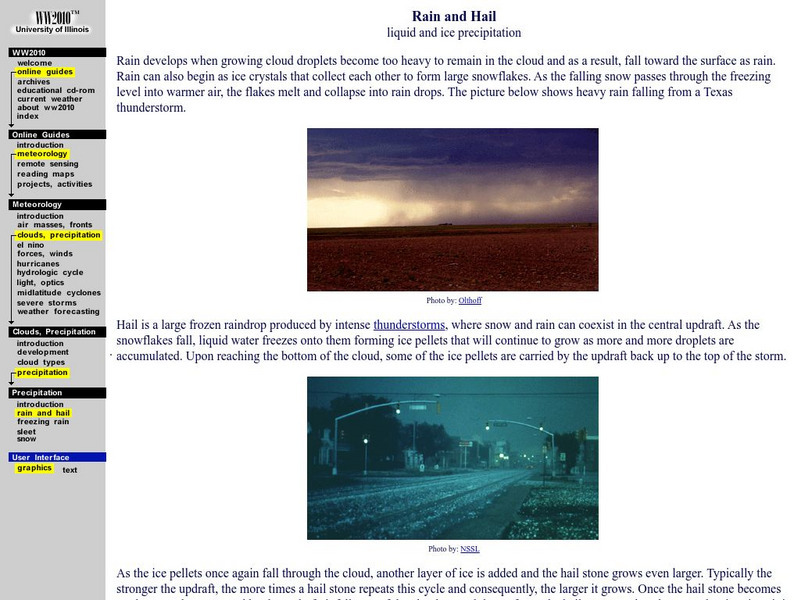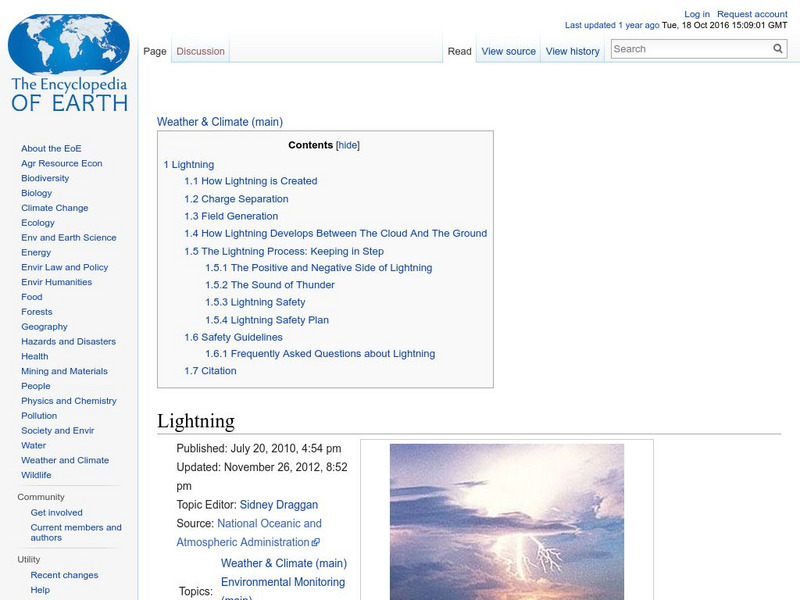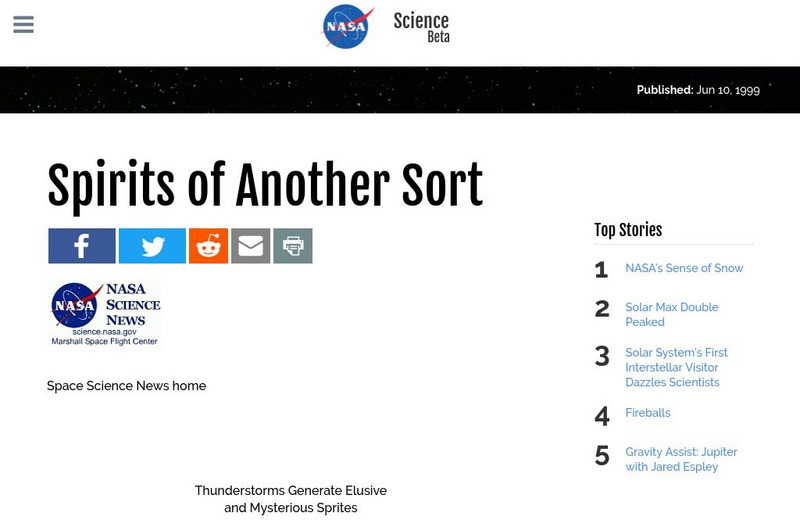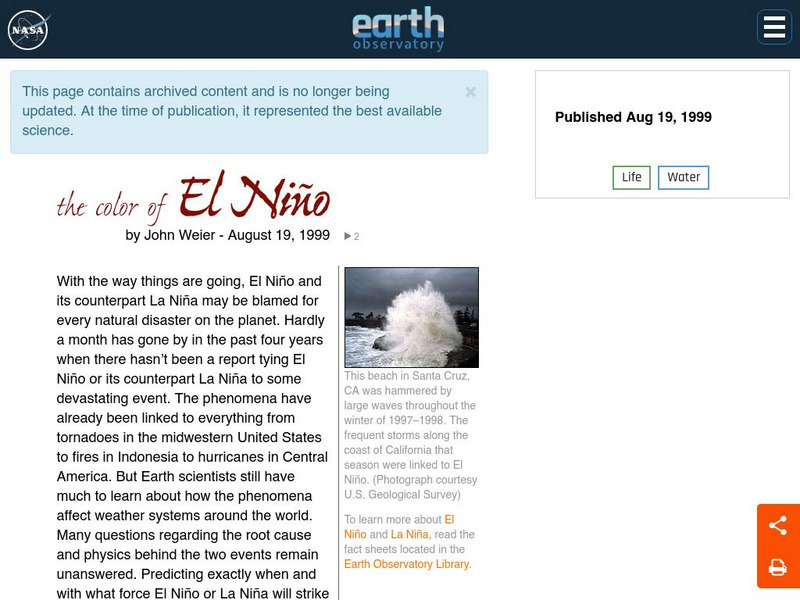Other
Cod/ Thunderstorms
You can link to single cell, multi-cell, and super cell thunderstorm pictures. Learn about the three stages of thunderstorms.
Other
Physics.org: Lightning Has Energy to Toast 100,000 Slices of Bread
A beginner's guide to understanding what causes lightning in a thunderstorm. Highlights the major ideas while giving fun, interesting facts.
University Corporation for Atmospheric Research
Ucar: How Tornadoes Form
Only about one thunderstorm in a thousand produces tornadoes. Learn how tornadoes form.
University Corporation for Atmospheric Research
Ucar: Modeling a Weather Front
In this demonstration, students observe how temperature changes can create a weather front, in particular how the mixing of warm and cold air can produce thunderstorms.
University of Illinois
University of Illinois Urbana Champaign: Hail and Rain
Find out how hail is produced. You will discover the relationship between hail and thunderstorms.
Children's Museum
The Children's Museum of Indianapolis: Weather: Twirly Whirly Tornado
In this lesson, students will witness the creation of a funnel, observe how a funnel moves debris, and learn how a thunderstorm can create tornados.
Encyclopedia of Earth
Encyclopedia of Earth: Weather & Climate: Lightning
Explains what lightning is, how it is created, what happens inside thunderstorms, how lightning develops during a storm, types of lightning, how individuals and groups can stay safe, chances of being struck by lightning, and answers to...
TED Talks
Ted: Ted Ed: The Most Lightning Struck Place on Earth
Lake Maracaibo is the stormiest place on the planet. Thunderstorms rage above this massive body of water for up to 200 days of the year, with each ear-splitting event lasting for several hours. Graeme Anderson lists the factors that...
TED Talks
Ted: Ted Ed: How Do Tornadoes Form?
Meteorologist James Spann sheds light on the lifespan of tornadoes as they go from supercell thunderstorms to terrible twisters before eventually dissolving back into thin air. [4:11]
TeachEngineering
Teach Engineering: Naturally Disastrous
Students are introduced to natural disasters, and learn the difference between natural hazards and natural disasters. They discover the many types of natural hazards - avalanche, earthquake, flood, forest fire, hurricane, landslide,...
NASA
Nasa: Spirits of Another Sort
What is a sprite? Read this article to learn more and even discover how to find one. (June 10, 1999)
University Corporation for Atmospheric Research
Ucar: Fact Sheet: Hail
How is hail formed? What happens as a hailstone falls through the air? Find the answers to these questions, and see a photo of crops damaged by hail.
NASA
Nasa Earth Observatory: The Color of El Nino
This article explains the effects El Nino has had on different climates and natural disasters throughout the world.
NOAA
Noaa: National Weather Service: Hail
"Imagine a baseball dropped from an airplane flying at 30,000 feet; imagine that baseball reaching speeds of 120 MPH as it falls to the ground; and imagine you're under it!" How does hail form? How big can it get? Read more here about...
Ducksters
Ducksters: Earth Science for Kids: Weather Glossary and Terms
Explore the concepts of climate, cloud, front, dew, fog, humidity, isobar, supercell, and thunderstorm on this site.
TeachEngineering
Teach Engineering: Tornado!
Students learn about tornadoes - their basic characteristics, damage and occurrences. Students are introduced to the ways that engineers consider strong winds, specifically tornadoes, in their design of structures. Also, students learn...
Ducksters
Ducksters: Earth Science for Kids: Weather: Tornadoes
Explore tornadoes on this website! Kids learn about tornadoes including how they form, characteristics, types including supercell and waterspout, categories, and fun facts.
Other popular searches
- Thunderstorms Clapping
- Severe Thunderstorms
- Videos on Thunderstorms
- Thunderstorms and Rain
- Thunderstorms Model
- Thunderstorms and Lightening
- Summer Thunderstorms
- Viedos on Thunderstorms
- Thunderstorms 4th
- Earth Science Thunderstorms
- Webquest on Thunderstorms
- Thunderstorms Worksheets














